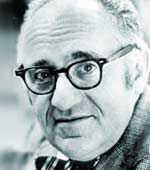To Fight the State, Build Alternatives to the State | The Libertarian Institute
Posted by M. C. on March 30, 2023
The effort to neutralize nonstate institutions has been enormously successful. Institutional obstacles to state power are shadows of their former selves. Long gone are the independent communes, the free towns, the local militias, and the independent monasteries and churches. In more recent history, even fraternal organizations and local charities have become increasingly invisible, and ever more dependent on the central government’s tax dollars. Religious observance is in deep decline. Church organizations such as schools and parishes are consequently much reduced. Families are in decline as well.
https://libertarianinstitute.org/articles/to-fight-the-state-build-alternatives-to-the-state/
by Ryan McMaken

Throughout its history, liberalism—the ideology today called “classical liberalism” or “libertarianism”—has suffered from the impression that it is primarily against things. This is not entirely wrong. Historically, liberalism coalesced as a recognizable and coherent ideology in opposition largely to mercantilism and absolutism throughout Western Europe. Over time, this opposition extended to socialism, protectionism, imperialism, aggressive warfare, and slavery as well. In this regard, liberals have for centuries fought against a wide array of moral and economic evils that spread poverty, injustice, and misery.
Being “against” things, however, has never been sufficient in itself, and liberals have never contented themselves with being so. Liberalism, of course, has long been closely associated with so-called “bourgeois” values, private property, local self-determination, and—in spite of claims to the contrary—religious institutions. Today, however, these institutions that have long undergirded liberalism and the free society are in an advanced state of decay. These are the institutions that have made society and civic life possible without state control.
The decline of these institutions did not happen by accident. The power of the modern state is the result of long wars by the state against independent churches, against family ties, and against local self-determination and self-government. The state has never suffered rivals, so any organization that competes for the “hearts and minds” of the population must be made impotent.
So, we find that the challenge at hand is more than simply opposing the state. Rather, it is necessary to build up, reinforce, and sustain institutions that can offer alternatives to the state in terms of organizing and supporting human society. Without these institutions, liberalism’s job is much more difficult—or even impossible.
Societies Are Composed of Institutions
As libertarian historian Ralph Raico notes, liberals make a key distinction between the state and “society.” Society is simply those institutions that are not the state. Or as David Gordon puts it, “Liberals believe that the main institutions of society can function in entire independence of the state.”
The idea that the institutions of society can function without a state is an established historical fact. Since the beginnings of human civilization, even in the absence of states, people have built up institutions and relationships designed to provide order, security, and social safety nets. As described by historian Paul Freedman, many societies have been held together by something other than “government in the sense that we understand it.” Rather, they can be held together with “informal social networks and ties.” These include “kinship, family, private vengeance, religion.”
Be seeing you


Leave a comment